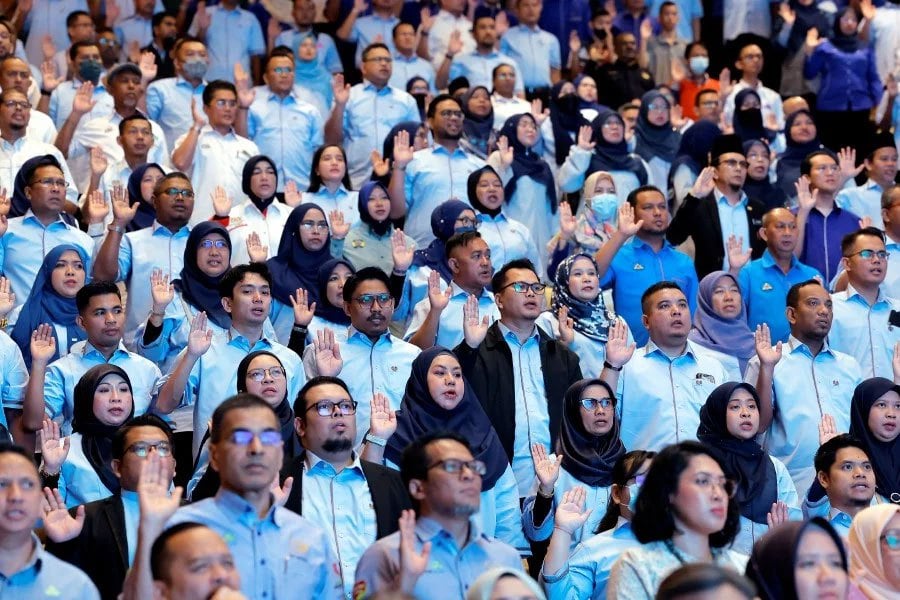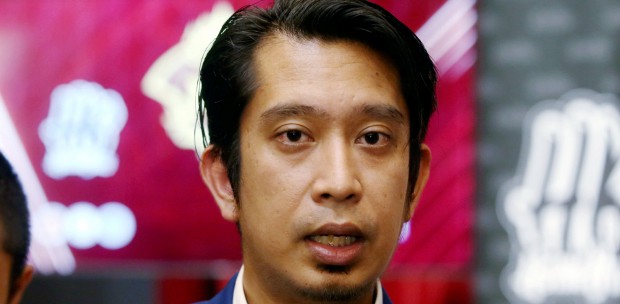LABOUR Day or Workers' Day is celebrated on May 1 every year to recognise workers' contributions to the nation.
In actuality, the celebration serves as a historical reminder regarding the oppression of labour during the Industrial Revolution in the West.
Capitalists at the time embraced the power to the point where they ignored workers' welfare in several areas, such as working hours, fair wages and the use of child labour.
The Haymarket Affair on May 4, 1886, which resulted in fatalities, ignited the labour movement's demands for justice and welfare in the workplace. It led to the creation of Labour Day, which recognises workers' struggles for fair treatment and rights.
Today, not only must people compete with each other to survive, but now they also have to consider technology in order to get employment. Inevitably, upgrading and creating new skills based on technology is a must to keep the labour demand remaining relevant.
Those unable to grasp the current technological requirements risk falling behind, losing market share in the industry, and being trapped in a low standard of living.
A person's quality of life may be impacted by this since it increases the disparity in digital literacy and skills between parties.
It is something of a huge lesson when someone becomes incompetent because they cannot keep up with the latest knowledge and technology. The impact is more for experienced employees who may find it difficult to adjust to changes in their industry, despite having previously demonstrated productivity.
Employees may experience stress, decline in productivity, face marginalisation and issues with discipline as a result. Prolonged situations may even result in dismissal. Hence, the skill requirements by employers have changed.
On the other hand, the scenario for new potential workers joining the workforce is slightly different, since they will be screened based on skills that employers currently need. But those who fail to get jobs due to outdated skills are also actually experiencing the obsolescence of their skills even before joining the workforce.
The employment scenario is also shifting due to the rapid advancement of technology, particularly for young people. It is not only about the deficit in knowledge or technological proficiency among the employees; it is also a result of automation and digitalisation, which are gradually taking over traditional jobs in a number of industries such as production lines, education and finance.
Due to the advent of automation and digitalisation, jobseekers now look for alternatives to generate income using the new technology.
The good thing about technology is, that anyone, regardless of age or educational background, can use it to generate income as long as they have the necessary skills. In terms of employment prospects, this scenario at least offers some short-term relief.
However, when many people are drawn to concentrating on a few areas or skills while abandoning other crucial skills such as health, agriculture and education, this may lead to an imbalance in the composition of the labour force.
For instance, many of our younger generation use social media, digital content and the gig economy to make money, which leads to the perception that formal schooling is no longer important as long as one can earn a good living.
It fosters the myopic vision that monetary gain is the primary objective. Simultaneously, it might result in a lack of critical skills which the nation needs.
Technology should not "de-skill" potential individuals and workers. Rather than serve as a barrier to flourishing talent and skills, it is a tool and supplement to enhance individuals' capacity to complete tasks with excellence.
In Islam, Allah SWT has created man in the finest form, "We have certainly created man in the best of stature," (al-Ṭīn, 95:4). In addition, humans are also endowed with certain advantages over other creations to fulfil specific purposes, including the endeavour to make ends meet, "And We have certainly honoured the children of Adam and carried them on the land and sea and provided for them the good things and preferred them over much of what We have created, with (definite) preference" (al-Isrāʾ, 17: 70).
Surely industry cannot succeed in technological sophistication solely without equivalent investment in people.
The history of Labour Day has taught us that today the relationship between workers and industry is symbiotic and one cannot be fully substituted or exist independently of the other.
* The writer is a senior researcher at the Centre for Economics and Social Studies, Institute of Islamic Understanding Malaysia (IKIM)





